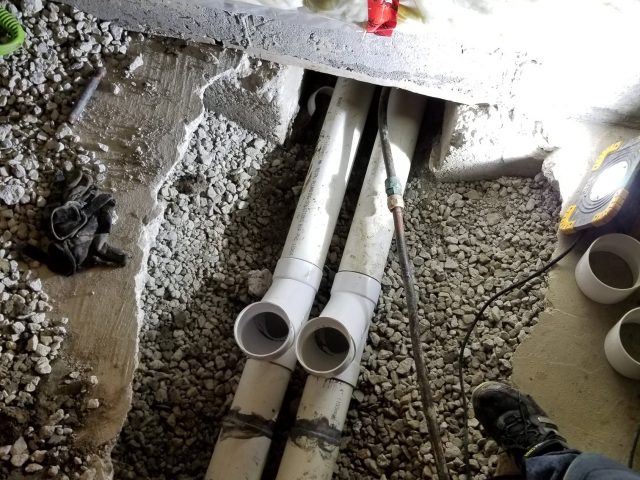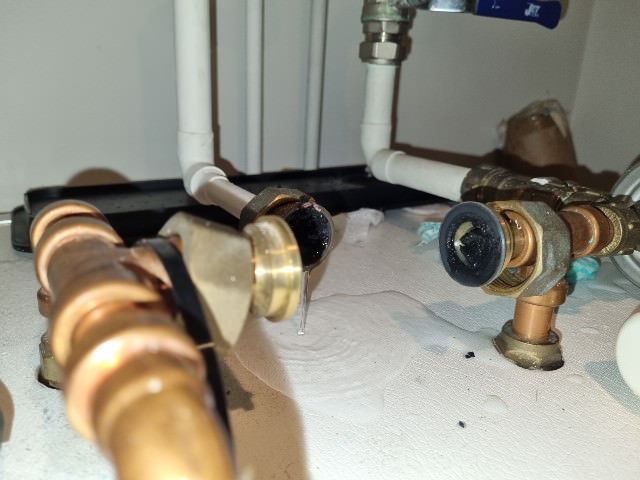The Role of Plumbing Inspections

When it comes to real estate transactions, buyers and sellers alike focus on a multitude of factors, from location and price to home aesthetics and potential for appreciation. However, one aspect that often flies under the radar but plays a critical role in the overall condition and safety of a property is plumbing. A plumbing inspection can be a game-changer in real estate dealings, providing invaluable insights that can influence decisions, negotiations, and long-term satisfaction with a home purchase. In this blog post, we will explore the essential role of plumbing inspections in real estate transactions, emphasizing their importance for both buyers and sellers.
Understanding Plumbing Inspections
A plumbing inspection is a thorough assessment of a property’s plumbing system, which includes water supply lines, drainage systems, fixtures, and appliances. Qualified inspectors evaluate these components to identify any issues, potential hazards, or code violations. The process often includes a visual inspection, testing fixtures and systems, checking for leaks, and sometimes using specialized tools, such as cameras, to inspect pipes that may be hidden from view.
Why Plumbing Inspections Matter
- Identifying Hidden Problems
One of the primary benefits of a plumbing inspection is its ability to uncover hidden problems. Many plumbing issues are not visible to the naked eye. For instance, leaks inside walls or under floors can lead to significant water damage over time, potentially resulting in mold growth and structural issues. By identifying these problems early, buyers can make informed decisions about whether to proceed with a purchase, negotiate repairs, or request credits.
- Protecting Investment
Real estate is a significant investment, and buyers want to protect that investment to the fullest extent. A plumbing inspection helps to ensure that the plumbing system is in good working order, reducing the risk of costly repairs in the future. If a buyer skips this step, they may inherit problems that could lead to unexpected expenses after closing, undermining their investment.
- Negotiating Power
For buyers, having a plumbing inspection report can serve as a powerful negotiating tool. If the inspection reveals issues, buyers can request repairs or a reduction in the purchase price. Sellers who are aware of plumbing issues before listing their property may choose to address them proactively to enhance their property’s marketability and avoid potential price reductions during negotiations.
- Ensuring Safety and Compliance
Safety should always be a top priority in real estate transactions. Plumbing systems that are outdated or improperly installed can pose serious risks, such as water contamination or structural damage. A plumbing inspection ensures that the system complies with local codes and regulations, helping to protect buyers from potential liabilities and health hazards.
- Peace of Mind
Purchasing a home is often one of the most significant financial decisions a person will make in their lifetime. A plumbing inspection provides peace of mind, allowing buyers to move forward with their purchase confidently. Knowing that the plumbing system has been thoroughly evaluated and deemed safe and functional can alleviate fears of hidden issues cropping up after the sale.
The Impact on Sellers
Sellers also benefit from plumbing inspections, even if they are not legally required in many areas. Here’s how:
- Enhancing Marketability
A property with a clean plumbing inspection report can stand out in a competitive market. Sellers can use a pre-inspection report as a marketing tool, showcasing the home’s condition and demonstrating their commitment to transparency. This can help attract serious buyers who appreciate the added assurance of a well-maintained plumbing system.
- Avoiding Last-Minute Surprises
Sellers who conduct plumbing inspections before listing their property can address any issues beforehand, preventing last-minute surprises that could derail a sale. This proactive approach can streamline the transaction process, making it smoother and less stressful for both parties.
- Establishing Trust
By being upfront about the condition of the plumbing system, sellers can establish trust with potential buyers. Transparency regarding the home’s condition fosters a positive relationship, making it more likely for buyers to proceed with their purchase.

What to Expect During a Plumbing Inspection
For buyers and sellers alike, understanding what to expect during a plumbing inspection can help alleviate anxiety. Here’s a brief overview of the process:
- Scheduling the Inspection
The first step is to schedule the inspection with a qualified plumbing inspector. Buyers may choose to include this as a contingency in their offer, while sellers may opt for a pre-listing inspection.
- The Inspection Process
During the inspection, the plumber will evaluate various components of the plumbing system, including:
- Water Supply: Checking for leaks, water pressure, and the condition of pipes.
- Drainage: Assessing the drainage system for blockages and proper flow.
- Fixtures: Examining sinks, toilets, bathtubs, and showers for functionality and leaks.
- Water Heater: Inspecting the water heater for age, condition, and proper installation.
- Sewer Lines: If necessary, using a camera to inspect sewer lines for cracks or blockages.
- Receiving the Report
After the inspection, the inspector will provide a detailed report outlining their findings. This report will include any issues discovered, their severity, and potential recommendations for repairs.
Conclusion
Plumbing inspections play a vital role in real estate transactions, providing essential information for both buyers and sellers. By identifying hidden issues, protecting investments, enhancing negotiation power, ensuring safety and compliance, and providing peace of mind, plumbing inspections are an integral part of the home buying and selling process. For sellers, a proactive approach to plumbing inspections can enhance marketability, establish trust, and prevent surprises that could complicate sales.
In a landscape where real estate transactions are often high-stakes and fast-paced, taking the time to invest in a plumbing inspection can save both buyers and sellers from significant headaches down the line. As you navigate your next real estate transaction, consider the importance of plumbing inspections—they may just be the key to a successful deal and a smooth transition into your new home.
For more information on plumbing systems, including the role of garbage disposals, you can visit hi-techplumbingandair.com/plumbing/garbage-disposals/.




